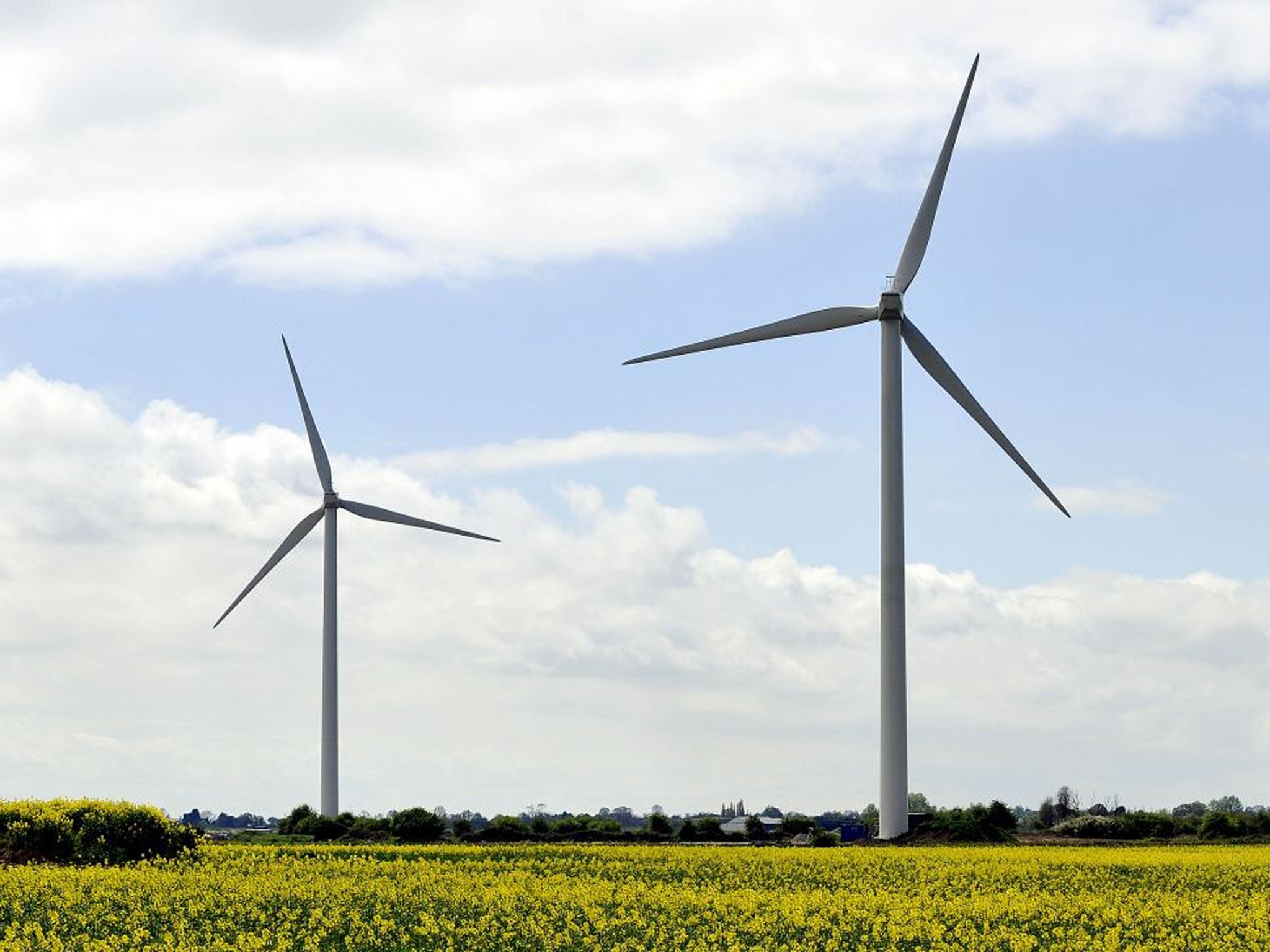Locals given more ground to block wind farms
Radical move could seriously curb growth of onshore wind power provision

Your support helps us to tell the story
From reproductive rights to climate change to Big Tech, The Independent is on the ground when the story is developing. Whether it's investigating the financials of Elon Musk's pro-Trump PAC or producing our latest documentary, 'The A Word', which shines a light on the American women fighting for reproductive rights, we know how important it is to parse out the facts from the messaging.
At such a critical moment in US history, we need reporters on the ground. Your donation allows us to keep sending journalists to speak to both sides of the story.
The Independent is trusted by Americans across the entire political spectrum. And unlike many other quality news outlets, we choose not to lock Americans out of our reporting and analysis with paywalls. We believe quality journalism should be available to everyone, paid for by those who can afford it.
Your support makes all the difference.Residents will be able to block the construction of wind farms under tough new rules that could seriously curb the growth of onshore wind power generation.
The move signals a new approach from the Government, which will give local people’s concerns about nearby wind farms precedence over the need for renewable energy and afford greater consideration to the impact of the turbines on the landscape and heritage.
However, in an attempt to ensure new wind farm developments don’t dry up altogether, the Government has offered residents a five-fold increase in financial incentives to host a power plant.
The subsidies will be worth about £100,000 a year from a medium-sized wind farm, or potentially about £400 a year off household energy bills, with the money ploughed into local community projects, used to reduce bills, or handed to residents in cash.
Eric Pickles, Communities and Local Government Secretary, said: “We want to give local communities a greater say on planning, to give greater weight to the protection of landscape, heritage and local amenity.”
Energy Secretary Ed Davey added: “It is important that onshore wind is developed in a way that is truly sustainable – economically, environmentally and socially – and today’s announcement will ensure that communities see the windfall from hosting developments near to them, not just the wind farm.”
Under the new rules, developers would have to consult communities before seeking planning permission and if locals objected, the process would come to a halt. The rules would also reverse the current balance of assumptions under which national policy overrides local concerns. In the future it will be the other way round.
Maria McCaffery, chief executive of RenewableUK, said: "Developing wind farms requires a significant amount of investment to be made upfront. Adding to this cost, by following the Government's advice that we should pay substantially more into community funds for future projects, will unfortunately make some planned wind energy developments uneconomic in England, so they will not go ahead and that is very disappointing.
"That said, we recognise the need to ensure good practice across the industry and will continue to work with Government and local authorities to benefit communities right across the country which are hosting our clean energy future."
Onshore wind provided 3 per cent of the UK's electricity supplies in 2011, generating enough to power the equivalent of 2.5 million homes.
More than 4,000 turbines are in operation across the country, with almost 6,000 under or awaiting construction or in the planning system. The industry attracted £1.6 billion in private investment in 2011/2012 and supported some 1,800 jobs.
Insiders rejected suggestions that the latest move undermined the Prime Minister's claims to lead the "greenest Government ever", as there was continued investment in other forms of renewable energy.
They claimed onshore wind was so tied up in protests and legal challenges it had not produced significant amounts of power, and said it was important people did not associate the green agenda with developments that damaged their lives.
Join our commenting forum
Join thought-provoking conversations, follow other Independent readers and see their replies
Comments